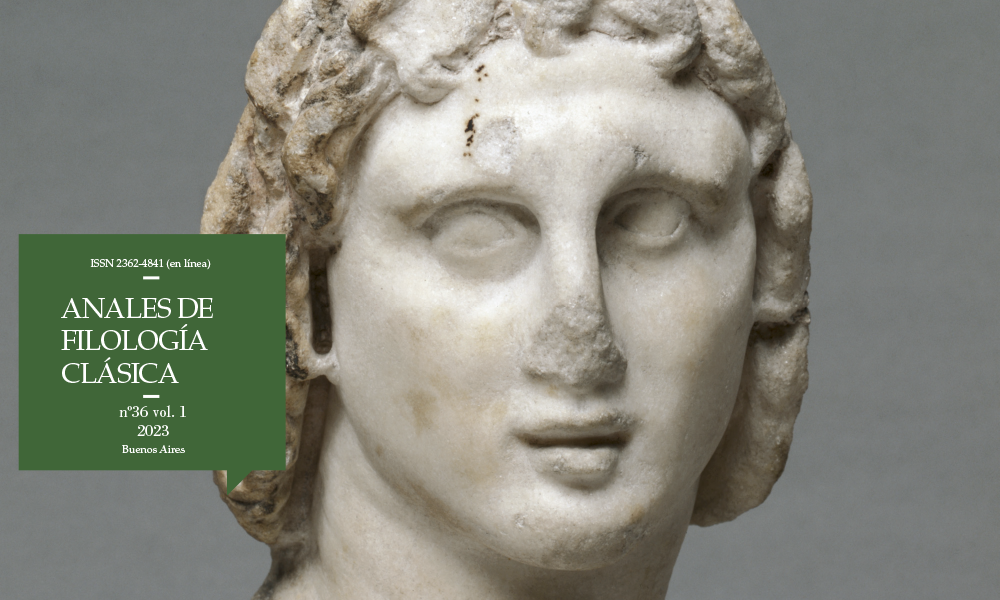An analysis of the configuration of the collectiveness in the λαοί of The Iliad and The Taking of Ilios
Keywords:
Homer - Iliad - Triphiodorus - The Taking of Ilios.
Abstract
This article proposes an analysis of the configuration of the collectiveness in the actions performed by the λαοί. Some collective similes from The Iliad and The Taking of Ilios will be compared in order to study their vehicles and tenors. They allow the Achaean side to be seen as a homogeneous group of warriors. These characteristics will be analysed on the basis of the similes' thematic, syntactic and structural content. Although the configuration of the collectiveness in the λαοί of each work is not analogous, it is to be expected that the analysis illustrates how the collectiveness is configured as a group of unified warriors at critical moments of the war.Downloads
Download data is not yet available.
Published
2023-12-22
How to Cite
Gómez Margiolakis, M. P. (2023). An analysis of the configuration of the collectiveness in the λαοί of The Iliad and The Taking of Ilios. Anales De Filología Clásica, 1(36). https://doi.org/10.34096/afc.i36.13851
Issue
Section
Artículos
Copyright (c) 2023 Malena Pilar Gómez Margiolakis

This work is licensed under a Creative Commons Attribution-ShareAlike 4.0 International License.
Los autores/as que publiquen en esta revista aceptan las siguientes condiciones:
- Los autores/as conservan los derechos de autor y ceden a la revista el derecho de la primera publicación, con el trabajo registrado con la licencia de Atribución-CompartirIgual 4.0 Internacional (CC-BY-SA 4.0) de Creative Commons, que permite el uso comercial de la obra y de las posibles obras derivadas, la distribución de las cuales se debe hacer con una licencia igual a la que regula la obra original.
- Los autores/as pueden realizar otros acuerdos contractuales independientes y adicionales para la distribución no exclusiva de la versión del artículo publicado en esta revista (p. ej., incluirlo en un repositorio institucional o publicarlo en un libro) siempre que indiquen claramente que el trabajo se publicó por primera vez en esta revista.
- Se permite y recomienda a los autores/as a publicar su trabajo en Internet (por ejemplo en páginas institucionales o personales) antes y durante el proceso de revisión y publicación, ya que puede conducir a intercambios productivos y a una mayor y más rápida difusión del trabajo publicado (vea The Effect of Open Access).
En ningún momento se cobrará monto alguno al autor por la publicación en esta revista.







